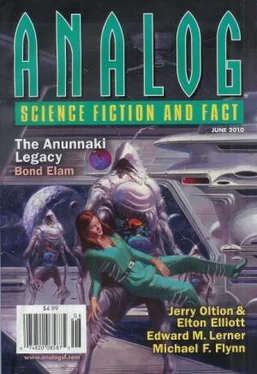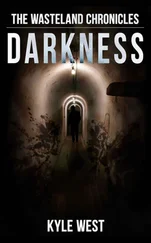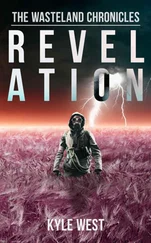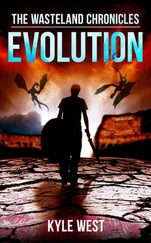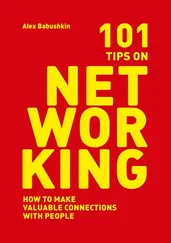Kyle Kirkland - Connections
Здесь есть возможность читать онлайн «Kyle Kirkland - Connections» весь текст электронной книги совершенно бесплатно (целиком полную версию без сокращений). В некоторых случаях можно слушать аудио, скачать через торрент в формате fb2 и присутствует краткое содержание. Год выпуска: 2010, Издательство: Dell Magazines, Жанр: Фантастика и фэнтези, на английском языке. Описание произведения, (предисловие) а так же отзывы посетителей доступны на портале библиотеки ЛибКат.
- Название:Connections
- Автор:
- Издательство:Dell Magazines
- Жанр:
- Год:2010
- ISBN:нет данных
- Рейтинг книги:5 / 5. Голосов: 1
-
Избранное:Добавить в избранное
- Отзывы:
-
Ваша оценка:
- 100
- 1
- 2
- 3
- 4
- 5
Connections: краткое содержание, описание и аннотация
Предлагаем к чтению аннотацию, описание, краткое содержание или предисловие (зависит от того, что написал сам автор книги «Connections»). Если вы не нашли необходимую информацию о книге — напишите в комментариях, мы постараемся отыскать её.
Connections — читать онлайн бесплатно полную книгу (весь текст) целиком
Ниже представлен текст книги, разбитый по страницам. Система сохранения места последней прочитанной страницы, позволяет с удобством читать онлайн бесплатно книгу «Connections», без необходимости каждый раз заново искать на чём Вы остановились. Поставьте закладку, и сможете в любой момент перейти на страницу, на которой закончили чтение.
Интервал:
Закладка:
But I’d spent part of the night productively studying the data I’d obtained from Arden’s house and the lab notes the AI had transferred. The most important bits involved genetics and intelligence. Not my specialty, but I’d learned something while working for Kirst.
Kirst had made a significant discovery, or at least he’d thought so. Considering the advanced capability of his second AI, which was surely based on the new findings, I’d say he’d been right.
People had been using computers to process data for a long time, but nobody had ever figured out how to configure them so that they could make decisions and inferences that are similar to human intelligence—in the fraction of human beings that had any these days. The problem was that scientists didn’t understand how humans did it, so how could anyone program a machine to mimic the process? Programmers tried using logic circuits, complicated rules of problem-solving, patterns, and brain-like devices in the attempt to make an advanced AI. Success up until now had been limited, though artificial neural networks continued to be promising.
Arden Kirst found an important component of human intelligence and, in the process, the means by which computer experts could implement that component in a digital system. According to Kirst, emotions are the primary means by which humans process data. Data without emotions are just valueless, disconnected numbers and facts. That was the theory, anyway.
Genes and gene expression play a strong role in emotions and mood. Genetics doesn’t explain all of human behavior, but it influences almost everything to a certain extent. Genes code for proteins such as enzymes that catalyze the synthesis of neurotransmitters to carry messages between brain cells, along with receptors that receive the messages and reuptake molecules that terminate the message. How much and what kind of proteins get made will strongly influence a person’s feelings and emotions as well as how the brain processes data.
In a complicated way I couldn’t fully understand from Kirst’s notes, emotions modulated the processing of data. The theory held that emotions are the links by which the brain connects data in meaningful and intelligent ways. In this view, emotions are not byproducts of human intelligence, they are the origins of human intelligence. Rather than being the results of thought or perception—I feel sad, for example, because I failed a test—emotions are essential links in the generation of intelligence. Emotions place a value judgment on passing or failing a test, for example, which would otherwise have no implication and would pass thoughtlessly from the mind. The more complex the emotions, the more complex the intelligence.
Maybe Kirst was right and maybe not. But his ideas had apparently inspired some computer experts to fashion remarkable AIs by mimicking the process in digital systems.
Kirst’s theory had also inspired another development, but the data weren’t clear about what it entailed. There were even signs that Yoobie had something to do with it, because I found several official documents related to “factors under discussion.” Kirst and Yoobie? That made no sense at all.
I’d finally fallen asleep even though my head had been spinning like a vortex. When I awoke, it was still spinning. If I didn’t get out of that car and stretch my legs I would go crazy.
I’d parked on the eighth floor. Avoiding the elevator, I took the stairs to the ground floor. Early morning sunlight streamed in; the sun had come up, the sky was bright blue. Blearily I walked outside. I kept walking, basking in the sunshine.
Ten minutes later I saw the Yoobie agent who had been at my residence the other day. And she saw me.
I turned around and started walking quickly back to the garage. I could hear her following.
How had she found me? Street sensors? Satellites? Yoobie seemed anxious to talk to me.
This time, I began to think, I’m in over my head.
Just as I reached the garage I heard a voice call out, “Citizen Ellam K. Troy!”
I raced into the garage, sprinting to the stairs. The elevator wasn’t an option because she could shut down power if she wanted to. With pumping legs and fists and lungs on fire I reached the door to the stairs. I made it in plenty of time.
But the door was locked.
Of course. I’d forgotten that they always keep the first floor doors locked from the outside. The stairway was an emergency exit, and they didn’t want people using it as an entrance. To go up you had to use the elevator.
I could hear footsteps behind me. Caught.
One little mistake. That was the first thing you learn as an Op. All it takes is one little mistake. They get you, they put you in a room with an I.V. and a bunch of people wearing white coats who shake their heads and wonder aloud at your obvious psychiatric needs because you can’t accept that Yoobie is the answer that solves all problems. So they fill you full of drugs so that your brain turns to mush and you drool and babble. Then they reeducate you, and the first words you learn to say are, “Uncle Barry is my shepherd, I shall not want.”
The footsteps were right behind me. I turned around, fists ready. She’d zap me, but I was going down fighting.
An explosion in the street sent both of us diving onto the plasticrete floor. When I looked through the wire fence that enclosed the ground floor of the garage I saw a burning car parked at the curb.
The Yoobie official and I exchanged a stunned look. Cars don’t blow up—there’s nothing inflammable in them, except for the illegal ones that have so many safety features that accidents never happen. And it’d been so long since I saw anything burning that my gaze was riveted on the dancing orange flames.
She hopped up and ran toward the carnage. I took two steps, then I stopped and slowly turned around. Standing behind me in the shadows was Barbara. Or Eve. But force of habit would keep me calling her Barbara.
“Let Yoobie deal with the car,” she said. “Nobody got hurt. All they’ll find is a bunch of broken, melted composite materials from the car of a professor I don’t particularly care for, and the residue of an explosive chemical mixture that I placed in it thirty seconds ago.”
“I know who you are,” I told her.
“Congratulations.” She waved a black object at the stairway door. It popped open, and she kept it from closing with her foot. “I warned you that you were in trouble. And what do you do? You wander around outside like a lost child.”
“You warned me?”
“Who else knew you might get into trouble?” She inclined her head toward the doorway. “You waiting for Yoobie to catch you again?”
I hesitated.
“Fine,” she said. “Do what you want.” She went inside.
The door swung on its hinges. Just before it clanged shut I got there and prevented it from closing, although not in the way I had intended. Two of my fingers got caught between the door and the wall. I said ouch in a creative sort of way.
Barbara opened the door and rescued my fingers. “I’m not sure you’re worth the trouble, but come in anyway. I’ve got some first aid in the lab.”
She led me through another doorway that somehow slid open in the wall. From there we entered a tunnel lit by organic LEDs stuck to the cinderblock walls. After a couple of turns to the left, Barbara opened a similar door in another wall by using the black wand, which I assumed emitted a code of pulsed electromagnetic radiation or exerted some specific sequence of electric or magnetic forces.
My hand throbbed in pain, although I could tell nothing was broken.
I found myself in a well-equipped biological laboratory. Barbara gave me some antiseptic ointment and bandages. I stood beside a DNA sequencer and wrapped up my fingers. “Why did you warn me?” I asked.
Читать дальшеИнтервал:
Закладка:
Похожие книги на «Connections»
Представляем Вашему вниманию похожие книги на «Connections» списком для выбора. Мы отобрали схожую по названию и смыслу литературу в надежде предоставить читателям больше вариантов отыскать новые, интересные, ещё непрочитанные произведения.
Обсуждение, отзывы о книге «Connections» и просто собственные мнения читателей. Оставьте ваши комментарии, напишите, что Вы думаете о произведении, его смысле или главных героях. Укажите что конкретно понравилось, а что нет, и почему Вы так считаете.
